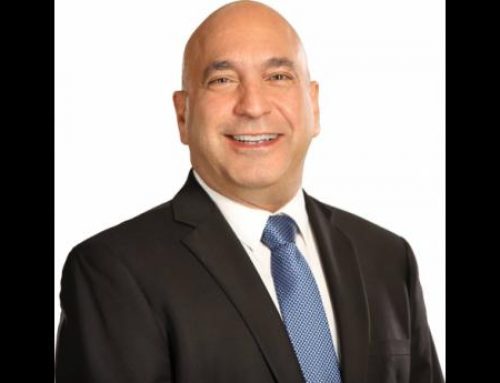In his now customary address at the 15th annual Jamaica Stock Exchange Regional Investments and Capital Markets Conference, as always made just before the speech of Jamaica’s prime minister (and which was thus once again heard by the PM amongst the many others in the audience), “Caribbean bond king” Gregory Fisher (now representing US investment bank Jefferies) stated that after 27 years of coming to Jamaica, through decades of painful austerity, “Jamaica has now become the glowing gem of the Caribbean”.
This is because, “Jamaica has proven, without a shadow of a doubt, that there is indeed a successful model for change.
“Out of the 73 countries in the EMBIG [Emerging Market Bond Index Global] benchmark, only 11 have deleveraged over the past 10 years,” meaning only 11 sovereigns have reduced their public debt-to-GDP ratios, and “Jamaica tops the list, having reduced its debt to GDP ratio by over 40 per cent.”
He described this as a “remarkable achievement in the context of sub-par economic growth and fiscal reckless behaviour elsewhere…including the United States and other developed countries”.
The anchor of the deleveraging process was the sustained fiscal effort deployed in the wake of the debt-restructuring process, the key word being “sustained”, as traditionally, Fisher notes, Jamaican “governments could sustain high primary fiscal surpluses for only short periods of time”.
He noted the current Government seems to “have the staying power that was not evident decades ago when I made my first journey down here”. Noting that this could be due to the “more explicit” involvement of the IMF, or other reasons (Fisher would have been familiar with Jamaica’s attempts at social partnership also), he nevertheless regards it as a “stark contrast compared to the likes of Argentina or even other numerous Latin American countries, too many to even mention”. Consequently, he says, he has recently observed a shift of real money institutional investors from the “noisy” world of Latin American credits “to the far calmer and more predictable Caribbean region”.
Finally, Jamaica’s sovereign ratings have now been upgraded, in a world where downgrades have been far outnumbering upgrades. The last time Jamaica was rated B+ by Standard and Poors (S&P) was back in 2001, which he applauds as it means the benefits of improved economic policy — already seen in bond spreads, local interest rates, the local stock market and the lower unemployment rate — “are now being finally felt by an even larger segment of Jamaica’s population”.
Looking back, he recalled that in 1993 reserves were less than US$500 million (US$3.16 billion in December) and unemployment was 16.3 per cent (now 7.2 per cent).
In 1994, he says the JSE return was negative 32 per cent (versus now one of the world’s best-performing markets).
When he first started trading, Jamaican bonds were trading at 70 cents on the dollar and yielded between four to five per cent above other Caribbean sovereigns such as Trinidad and Barbados. Now Jamaica trades “tight” to all its neighbouring credits, when all issues are at premiums.
He noted a recent CNN travel report in which Jamaica has been named one of the top 20 best places to travel in 2020. He observed, however that though our potential “is incredible”, the reforms, particularly tough issues such as crime, have to continue.
He said he hopes his “beloved Jamaica” does not end up in the “cycles” of more developed countries, noting that he was here during the financial crash of the 1990s “long ago, but I remember it like it was yesterday” .
In 1995, he said, inflation was over 40 per cent, Jamaica’s reserves were minus US$372 million, and interest rates were over 42 per cent as well. He reminisced not to relive that nightmare but as a reminder of what can happen with the absent financial stewardship today’s government has “rekindled and carefully cultivated”.
Fisher advised that he reduced the time he normally spends in his speech talking about the US and global markets, as most other countries worldwide, including America, remain cycle-bound, compared with now “decades of consistent progress here in Jamaica”.
He noted that in 2019 the US market climbed a constant wall of worry when the S&P 500 was up 28.9 per cent (biggest year since 2013), the Nasdaq was up 35.25 per cent, and the Dow was 22.35 per cent — despite concerns of trade wars, slower growth, corporate slowdowns, impeachment and the never-ending Brexit story, in addition to ultra-high valuations and the inversion of the US yield curve (short yields above long yields normally forecasting recession).
The reason nearly every asset class did well is that “just about every central bank in the world is still pumping liquidity into the system via lower rates and expansion of their respective balance sheets”. Investors were simply forced to put all this “free money to work”. The central banks of the world gave investors “the gift of the longest bull market in history”, as global risk appetite ran rampant with 47 global rate cuts.
In short, Fisher observed, 2019 was not a year of fundamental investing but rather momentum trading, due to the massive amounts of market liquidity. In 2020, he asked, will “fear of missing out” continue to power the indexes to new highs? Arguing that US markets cannot be deemed cheap, and need to be supported by fundamentals at some point, he argues that “dividends at a reasonable price” from both bonds and stocks is the way to protect 2019 gains.
His key risks include loss of earnings growth momentum, overvaluation (15 per cent of S&P’s gain was from technology alone), debt rising (US corporate debt now 50 per cent above 2009), and the brief bond yield curve inversion (a historically accurate but not instantaneous predictor of recession).
He notes that stock market sell-offs don’t require a recession, citing the late 2018 “December massacre” when it sold off 20 per cent, and 1987 when no imminent recession was on the horizon. Finally, he notes that 2020 is a US election year (a clearly divided America is likely to create massive bouts of volatility), and the trade war between the US and China isn’t over, however, the markets are priced as though the trade war has all but ended. In short, his advice is to enjoy the waves of momentum trading, but keep your eyes open.







Leave A Comment